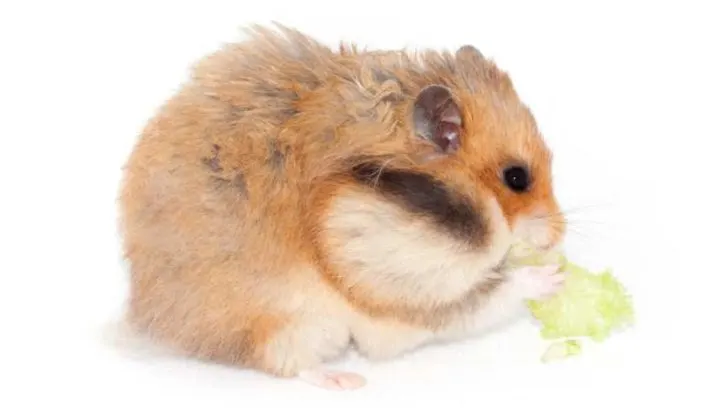Cabbage is one of the healthiest vegetables in the world, and it’s so flexible that you can use it in various recipes. It’s a frequent dish in many families, leading many pet owners to wonder, “Can hamsters eat cabbage?“
Though hamsters are omnivorous, indicating they can get sustenance from plants and animal origins, they primarily consume grains and vegetables in their natural environment. As a result, their stomachs can manage some cabbage in their nutrition.
But how much cabbage can hamsters consume – and how often? Can they eat a wide range of cabbages, or should they stick to the simple, green kinds?
Read on and get some answers about cabbage for hamsters!
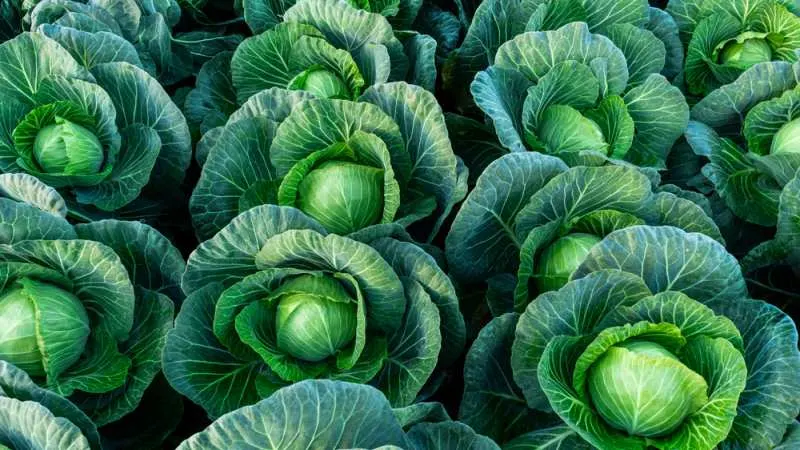
Nutritional Facts About Cabbage
Every day, your hamster requires a range of antioxidants, minerals, and vitamins – ideally from organic sources. And cabbage is a wonderful supplement to your pet’s diet because it’s high in nutrients.
Let’s see what 100 grams of cabbage offers:
| Name | Amount |
|---|---|
| Calories | 25 kcal |
| Protein | 1.25 g |
| Fat | 0.10 g |
| Water | 93 g |
| Sugar | 3 g |
| Fiber | 2.5 g |
| Calcium | 40 mg |
| Phosphorous | 25 mg |
| Potassium | 165 mg |
| Vitamin A | 99 UI |
| Vitamin K | 76 mcg |
| Vitamin C | 36.5 mg |
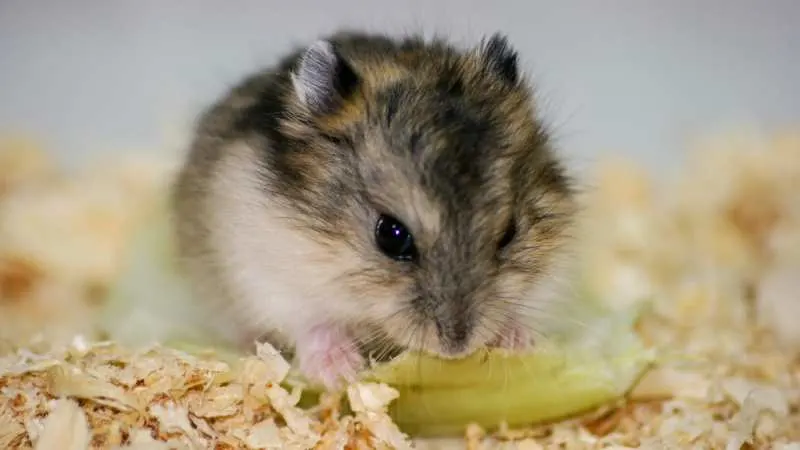
Why Is Cabbage Good For Hamsters?
As we can see from the table above, cabbage is a veggie containing an abundance of nutrients and vitamins essential for hamsters’ growth.
Cabbage is quite beneficial for these animals when consumed in sufficient quantities. Hamsters may take care of their oral health simply by eating cabbage uncooked. Plus, cabbage contains calcium that contributes to healthy teeth and bones.
This veggie, as previously shown, is also high in dietary fiber. That’s beneficial to the hamster’s digestive system because it encourages good bowel motions, reducing constipation and diarrhea.
Also, cabbage contains a proportional amount of phosphorus and potassium. As an essential nutrient in the body, phosphorus helps conserve energy and keep cells and tissues in excellent condition.
Hamsters benefit most from cabbage because it supplies significant amounts of vitamins C and K.
Vitamin C
Vitamin C is often regarded being one of the most critical vitamins available. While it is famous for bone and tooth health, supporting cartilage and collagen synthesis, and preventing scurvy, its most significant purpose is immune system strengthening.
Vitamin C has antioxidant properties, as well. Antioxidants are substances that protect cells by scavenging free radicals. On the other hand, free radicals are highly volatile molecules that take electrons from the body’s cells to ensure stability.
They alter the cellular structure when this occurs, resulting in abnormalities, including cancer. These also contribute to premature aging, cardiovascular disease, and arthritis.
Sadly, free radicals are present everywhere around us due to pollution. So, to keep the adverse effects of free radicals at a minimum, make sure your furry buddy gets a suitable dosage of vitamin C.
Vitamin K
Vitamin K performs a variety of essential functions in the body – be it yours or your hamster’s. It improves reproductive health, controls calcium levels in the blood, and avoids heavy bleeding in the event of an accident by boosting the blood coagulation process.
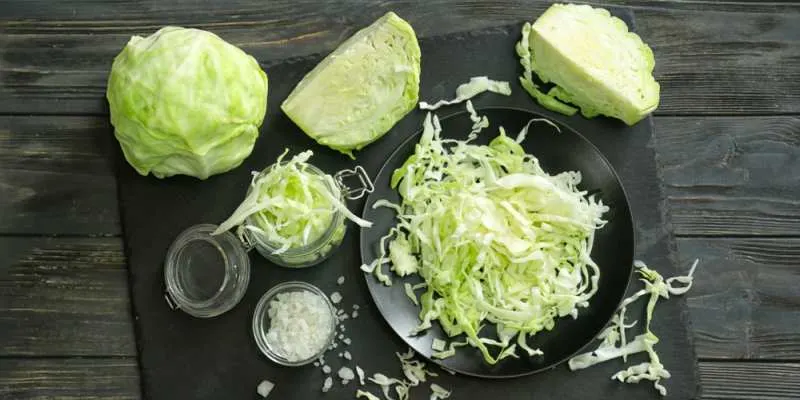
How Much Cabbage Can Hamsters Eat?
You must be exceedingly careful when implementing new foods to hamsters’ diet since their digestive tracts are particularly sensitive.
The general rule is – to begin with, tiny pieces.
When it comes to cabbage, split a tiny leaf into halves, offer it to the pet, and wait a day or two to observe how they respond. You can up the portion to a whole tiny leaf if all goes well – but chop it up to prevent choking.
Here’s another rule to follow: You shouldn’t give cabbage to a hamster more than three times a day.
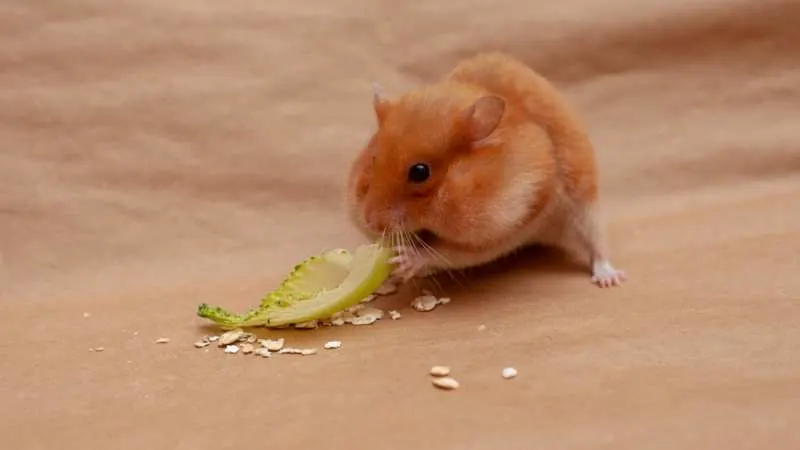
How Often Should Hamsters Eat Cabbage?
You may eventually wish to include cabbage in your hamster’s diet because it enjoys eating it.
If you do, ensure to provide a range of foods and limit the number of fresh vegetables and fruits you serve since too much may cause nutritional imbalance and contribute to health concerns.
If you just got your hamster and it hasn’t been given fresh food yet, take things slow – and start with something simple, like cucumber or spinach, to introduce vegetables.
During the first week, provide only a small quantity of vegetables every other day while keeping an eye out for symptoms of gastrointestinal discomforts, such as diarrhea.
You may progressively raise the quantity of fresh food throughout the next week and offer them a tiny portion of cabbage in the following weeks.
Don’t feed your hamster cabbage simultaneously with other items that might induce flatulence, such as cauliflower or broccoli – or anything with a lot of sugar.
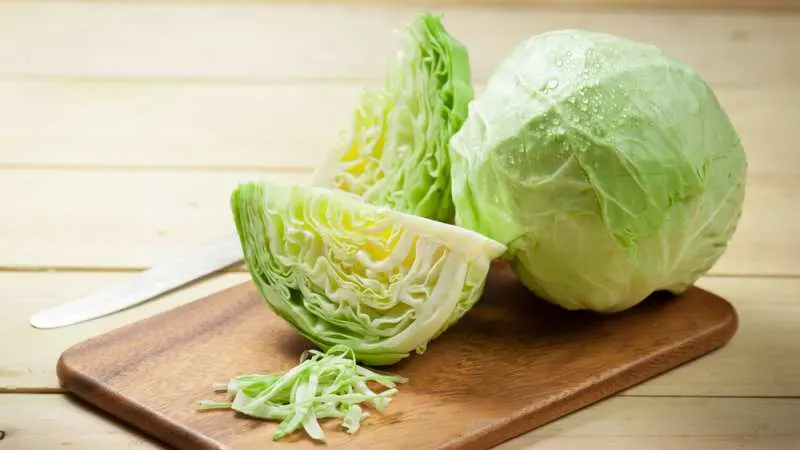
The Risks of Feeding Cabbage to Hamsters
While cabbage has remarkable hamster-beneficial characteristics, it’s not a veggie you should feed to your hamsters daily.
Cabbage can induce stomach problems, discomfort, diarrhea, inflammation, and gastrointestinal disorders in your hamsters. It’s also a recognized diuretic, suggesting that if you offer too much, it could cause excessive urination and dehydrate your hamster.
Furthermore, unwashed cabbage may have chemicals that can harm it, as well.
If you want to give cabbage to your hamster, ensure to do it in moderation and just as much as you are permitted.
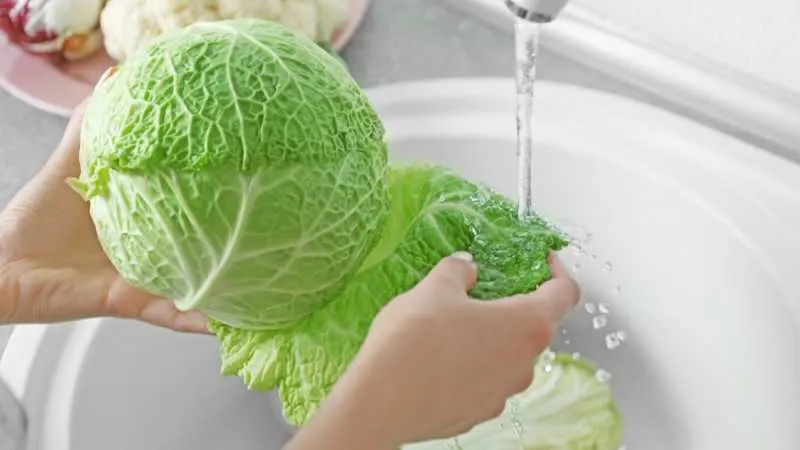
Preparing Cabbage For Hamsters
There are various steps to take while cooking cabbage for your furry buddies.
For starters, buy organic cabbage. Avoid purchasing veggies from the local market if you have hamsters. Those vegetables obtained from local supermarkets are doused with chemicals and pesticides hazardous to your hamsters.
Then, take away the outer leaf from fresh cabbage, ensure that the veggie is free of bruises, and wash the veggie thoroughly with clean tap water to help destroy the bacteria.
Chop the vegetable in halves, remove the stem, and take one of its leaves. If you cut it into tiny pieces, your hamster will have more success consuming the veggie.
If you want to make a healthy cabbage-based snack, you can serve it alone or combined with other vegetables.
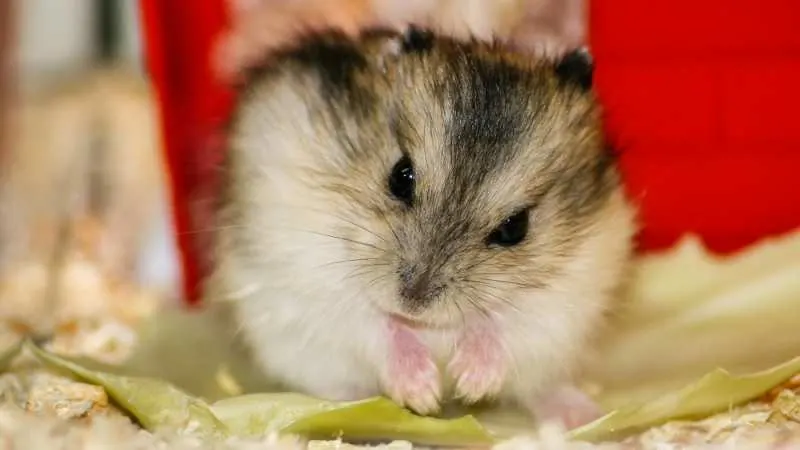
Can Hamsters Eat All Cabbage Parts?
It’s recommended that you give your hamsters cabbage leaves only; they might not enjoy the stem since it’s difficult to chew.
You may, nevertheless, cut a little bit of the stem and feed it to them to observe their reaction. They might love biting and nibbling on the stem – if not devouring it whole.
There are no known health dangers associated with giving Syrian Hamsters a piece of stem to experiment with diet-wise. But due to their small stature, dwarf hamsters shouldn’t be given the stem as it may pose a choking danger.
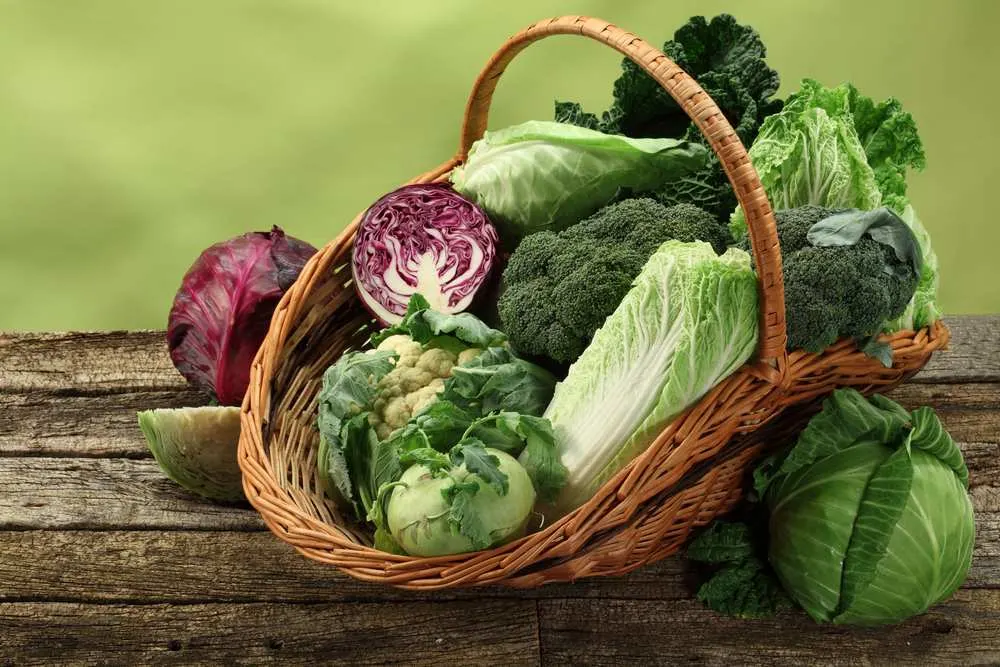
What Types Of Cabbage Can Hamsters Eat?
There are various cabbage types out there – but can hamsters consume all of them equally?
Dried Cabbage
Hamsters may consume dried cabbage. The one thing to remember here is, again, that you mustn’t provide too much to your hamsters since it might cause stomach problems, diarrhea, and bloating.
If you wish to provide dried cabbage to your furry pets, give them one tiny piece once per week for Syrian and Robovksi hamsters and once every ten days for other hamsters.
Cooked Cabbage
No. You should only offer uncooked cabbage to your hamsters. Cooked cabbage is harmful to their health since it can upset their digestive tract.
Red Cabbage
Yes, you may feed your hamsters red cabbage. This sort of cabbage is rich in vitamin C!
Nevertheless, to prevent health issues, you should control the portion.
Savoy Cabbage
Indeed, you may feed your hamsters savoy cabbage. All hamsters enjoy the texture and crunch of savoy cabbage.
Furthermore, it contains a lot of Vitamin C and A, both of which are essential for our hamsters’ nutritional needs. You can treat a urinary infection (UTI) with it, too; this veggie can aid recovery.
Chinese Cabbage
You should not offer this variety of cabbage to your hamsters.
Even though this sort of cabbage is abundant in vitamins A and C, the increased calcium level makes it unsuitable for hamsters.
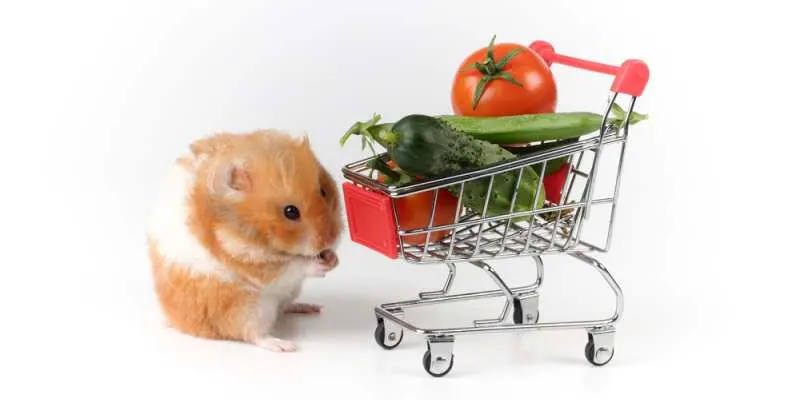
The Proper Diet For Hamsters
Wild hamsters consume an omnivorous diet of insects, larvae, seeds, and other plants. If a wild hamster came across cabbage, chances are they’d eat it gleefully!
Aside from green vegetables like cabbage, here’s what you should feed a hamster for optimal health:
- Hamster pellets: Choose a high-quality brand and check the label to figure out the right portions to feed your hamster daily.
- Hay: While fresh hay isn’t required, your hamster will enjoy it, and it’ll benefit its health in more areas than one. Hamsters use hay for digging; it’s added to their cages and is nibbled on. Every one of these behaviors is beneficial to your hamster’s psychological health, and nibbling is healthy to their teeth.
- Birdseed: Each week, you should feed one tablespoon of birdseed to your hamster.
- Fruits and veggies: You should provide tiny amounts of fruit and vegetables, only as much as your hamster can consume in one meal. Leftovers should be cleaned as soon as possible so that they don’t rot or mold – which might occur if your hamster has the chance to horde them.
- Water: The quantity of clean, freshwater must be unrestricted. Ensure to wash and refill your hamster’s drinking container at least once a day.
Also, your hamster requires safe chewable materials. Their teeth are constantly developing, and chewing keeps them from getting enlarged, uncomfortable, and perhaps diseased.
So, keep unprocessed softwood, coco shell, hay cubes, or unbleached scrubbing brush in your hamster’s environment at all times.
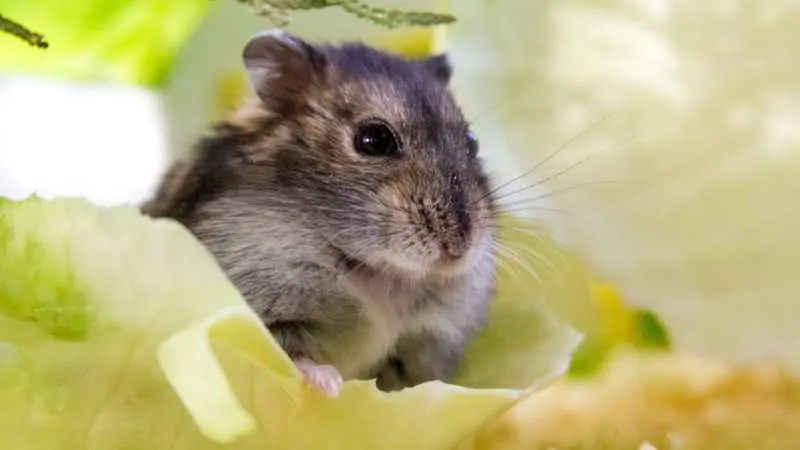
Conclusion
So, in conclusion, can hamsters eat cabbage?
Our hamsters need various nutrients, including Vitamin C and Vitamin K they get from cabbage. Therefore, your hamster can eat cabbage – but only in moderate amounts. One or two small leaves three times a week is the best option.
There’s no reason to worry if you gave cabbage to your hamster before even confirming that it was safe to do so.
Although cabbage is not harmful to hamsters, consuming too much can induce digestive issues due to their delicate tummies.
So, try giving your hamster cabbage as a snack rather than a meal.

